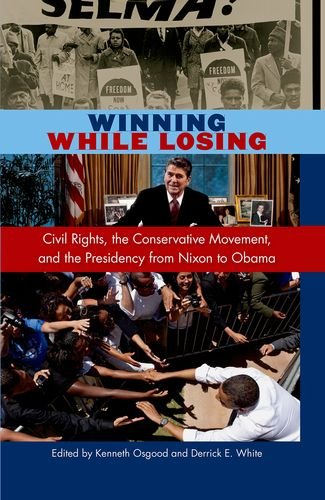

Most ebook files are in PDF format, so you can easily read them using various software such as Foxit Reader or directly on the Google Chrome browser.
Some ebook files are released by publishers in other formats such as .awz, .mobi, .epub, .fb2, etc. You may need to install specific software to read these formats on mobile/PC, such as Calibre.
Please read the tutorial at this link: https://ebookbell.com/faq
We offer FREE conversion to the popular formats you request; however, this may take some time. Therefore, right after payment, please email us, and we will try to provide the service as quickly as possible.
For some exceptional file formats or broken links (if any), please refrain from opening any disputes. Instead, email us first, and we will try to assist within a maximum of 6 hours.
EbookBell Team

4.7
16 reviews“This remarkable study offers breakthrough findings and insights about the state of civil rights policies in the post–civil rights era.”—Hanes Walton Jr., coauthor of American Politics and the African American Quest for Universal Freedom
“Eschewing easy absolutes, Winning While Losing presents a carefully nuanced interpretation of the subtle gains and losses experienced by liberals and conservatives, by Democrats and Republicans, and by proponents of racial justice and their opponents.”—Harvard Sitkoff, author of Toward Freedom Land
“Insightful and fascinating. Sets an agenda for further scholarly debate about the puzzle of ‘winning while losing’ that defines the fortunes of civil rights and the stratagems of politicians over the past generation.”—Robert Mason, author of Richard Nixon and the Quest for a New Majority
“A comprehensive account of the links between racism, conservatism, and presidential politics in the post–civil rights era.”—Greta de Jong, author of Invisible Enemy: The African American Freedom Struggle after 1965
During the four decades separating the death of Martin Luther King and the election of Barack Obama, the meaning of civil rights became increasingly complex. Civil rights leaders made great strides in breaking down once-impermeable racial barriers, but they also suffered many political setbacks in their attempts to remedy centuries of discrimination. Complicating matters, the conservative turn in American political life transformed the national conversation about race and civil rights in surprising ways.
This pioneering collection of essays explores the paradoxical nature of civil rights politics in the years following the 1960s civil rights movement by chronicling the ways in which presidential politics both advanced and constrained the quest for racial equality in the United States.